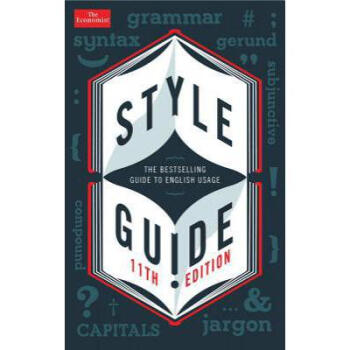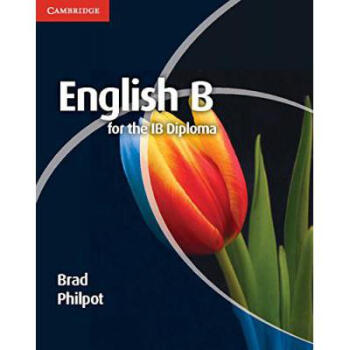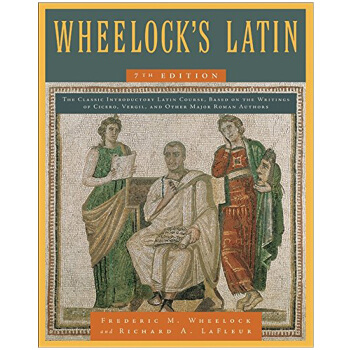

具体描述
图书基本信息
Style Guide
作者: The Economist;
ISBN13: 9781610395380
类型: 平装(简装书)
语种: 英语(English)
出版日期: 2015-06-23
出版社: Economist
页数: 288
重量(克): 272
尺寸: 211 x 135 x 23 mm
商品简介
This expanded eleventh edition of the bestselling guide to style is based on the Economist's own updated house style manual, and is an invaluable companion for everyone who wants to communicate with the clarity, style and precision for which the Economist is renowned. As the introduction says, 'clarity of writing usually follows clarity of thought.'
The Economist Style Guide gives general advice on writing, points out common errors and cliches, offers guidance on consistent use of punctuation, abbreviations and capital letters, and contains an exhaustive range of reference material - covering everything from accountancy ratios and stock market indices to laws of nature and science.
Some of the numerous useful rules and common mistakes pointed out in the guide include:
*Which informs, that defines. This is the house that Jack built. But: This house, which Jack built, is now falling down.
-Discreet means circumspect or prudent; discrete means separate or distinct. Remember that "Questions are never indiscreet. Answers sometimes are" (Oscar Wilde).
-Flaunt means display, flout means disdain. If you flout this distinction you will flaunt your ignorance
-Forgo means do without; forego means go before.
-Fortuitous means accidental, not fortunate or well-timed.
-Times: Take care. Three times more than X is four times as much as X.
-Full stops: Use plenty. They keep sentences short. This helps the reader.
用户评价
初读这本书时,我心里其实是带着点怀疑的,毕竟市面上“指南”太多了,大多不过是换汤不换药的陈词滥调。但《Style Guide》的独特之处,在于它对“语境”的强调。它似乎明白,每一个项目都是一个独特的生态系统,硬套标准只会适得其反。书里有一段关于图标设计的论述,简直是教科书级别的分析——它没有给出“必须画成什么样”的指令,而是提出了一个决策框架:你的用户是谁?他们习惯什么样的交互模式?在不同的屏幕尺寸下,图标的识别效率如何权衡?这种由内而外的思考方式,彻底改变了我过去那种“先画好看,再考虑好用”的习惯。作者的文笔极其凝练,但绝不晦涩,很多复杂的概念都被拆解成了易于消化的步骤和模型。我特别喜欢它讨论排版时的那种哲学意味,关于留白(White Space)的运用,与其说是一种设计技巧,不如说是一种对呼吸感的追求,对信息层级的尊重。合上书时,我感觉自己拿到的不只是一本手册,而是一套成熟的设计方法论,它教你如何提问,如何论证,如何为自己的每一个设计决策找到坚实的逻辑支撑。对于任何想要从“美工”蜕变为“设计师”的人来说,这本书的价值,无可估量。
评分说实话,这本书的阅读体验极其流畅,简直像在跟一位经验极其丰富、但又极富耐心的资深同事对话。我尤其欣赏它在处理“灵活性”与“约束性”之间的平衡艺术。很多指南都会走向极端,要么是死板到扼杀创意,要么是过于开放导致混乱不堪。而《Style Guide》似乎找到了那个完美的黄金分割点。书中关于组件化设计和设计系统的构建那一块,简直是为我们这些深陷在大型项目维护泥潭中的人量身定做的“救命稻草”。它清晰地阐述了如何建立一个可持续、可扩展的设计语言,以及如何确保不同团队成员产出的元素能够无缝对接。书中提供了大量的案例对比,展示了遵循指南和野蛮生长的项目在长期维护中产生的巨大差异。那种对比是触目惊心的,它用事实证明了前期投入到规范建设上的时间,在未来会以指数级的效率回报。我甚至在想,如果我的团队早几年就能读到这本书,我们可能已经避开了很多昂贵且痛苦的返工。它的深度和广度都令人叹服,既有宏观的战略高度,又不乏微观的操作细节,是一本真正的“全景式”指南。
评分这本书的装帧设计本身就是对其内容最好的诠释——极简、精确、高效。打开它,没有一句废话,直击核心。我是一个对细节有强迫症的读者,通常我会对很多不必要的“情怀铺垫”感到不耐烦。但在《Style Guide》中,这种效率感达到了极致。它在阐述设计原则时,采用了非常理性的结构,比如用“必要性-可行性-美学”三段式来评估一个设计选择,逻辑链条清晰到让人无法辩驳。我最欣赏的是它对可用性测试和迭代反馈如何融入风格指南的章节。很多指南写完就束之高阁了,但这本书明确指出,风格指南是一个“活的文档”,它需要随着用户反馈和技术发展而不断进化。这种动态的视角,让我对未来维护这份指南充满了信心。它不是一个静态的承诺,而是一个持续优化的引擎。从排版网格的精确度到交互动效的微调标准,书中给出的参数几乎都带有可量化的指标,这极大地降低了团队内部的沟通成本和主观判断的风险。读完之后,我感觉自己对“专业标准”的理解提升了一个台阶,不再是模糊的概念,而是可以被精确执行的指令集。
评分阅读《Style Guide》的过程,更像是一次深度的思维重塑训练,而非单纯的知识输入。这本书的叙事节奏非常巧妙,它会先抛出一个核心问题,然后层层递进地引导你思考,最终在你脑海中构建起一个完整、自洽的逻辑体系。特别是关于品牌声音(Brand Voice)和视觉表达的融合,我从未在其他任何地方看到如此细致的剖析。作者非常犀利地指出了许多品牌在努力保持视觉一致性的同时,却常常忽略了文字信息传递出的“性格”与视觉风格的脱节。书中详细列举了如何通过动词的选择、名词的偏好,乃至标点符号的使用习惯,来确保文案和视觉的“同频共振”。这对于提升整体用户体验的细腻度至关重要。这本书的精妙之处在于,它让你意识到,每一个微小的决定——一个圆角、一个缩进、一个副标题的语气——都在为品牌的整体形象添砖加瓦。它不只是指导你“画什么”,更是指导你“如何思考”一个完整、有灵魂的产品形象应该如何被建立和维护。这本书的深度足以支撑专业人士反复研读,其前瞻性也足以引领团队走向更高的设计水准。
评分这本书实在是让人眼前一亮,简直是设计界的“圣经”!我刚翻开它,就被那种严谨中带着灵动的气息所吸引。它不像其他那种干巴巴的理论堆砌,而是真正从实际操作出发,把那些原本复杂到令人头疼的规范,用一种近乎艺术化的方式呈现了出来。比如,关于字体选择那一章,作者竟然能把不同字体的历史渊源、视觉心理学影响,甚至是如何根据品牌调性来做取舍,描绘得如此生动有趣。我印象最深的是它对色彩体系构建的论述,那不仅仅是告诉你CMYK和RGB的数值,而是深入探讨了色彩在不同文化背景下的象征意义,以及如何利用色彩的对比度和饱和度来引导用户的视觉焦点。阅读过程中,我时不时会停下来,对照着自己手头的项目,那种豁然开朗的感觉,就像是有人帮你把迷宫中的所有错误路径都清理干净了。尤其值得称赞的是,它对“一致性”的探讨,不再是机械化的要求,而是上升到了品牌资产维护和用户体验连贯性的高度。这本书真正教会我的,是如何将“规范”融入“创造”,而不是让规范成为创意的枷锁。看完第一遍,我就知道,它会成为我案头常备的工具书,随时可以拿出来,从中汲取最精炼、最实用的指导。
相关图书
本站所有内容均为互联网搜索引擎提供的公开搜索信息,本站不存储任何数据与内容,任何内容与数据均与本站无关,如有需要请联系相关搜索引擎包括但不限于百度,google,bing,sogou 等,本站所有链接都为正版商品购买链接。
© 2026 windowsfront.com All Rights Reserved. 静流书站 版权所有

![【中商原版】前世今生:16堂生死启蒙课[英文原版]Many Lives, Many Masters: pdf epub mobi 电子书 下载](https://pic.windowsfront.com/1753456913/55ffc062N1093fc3d.jpg)


















